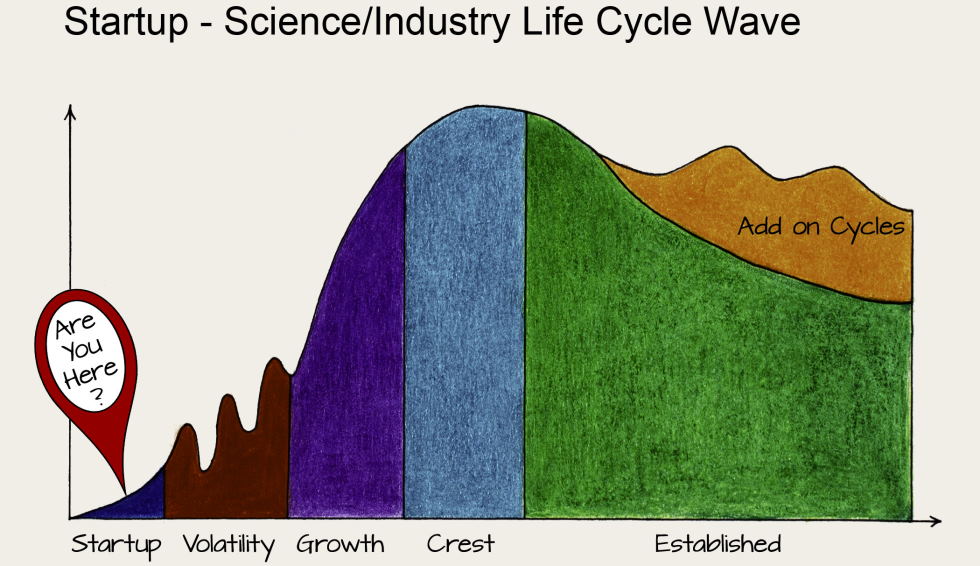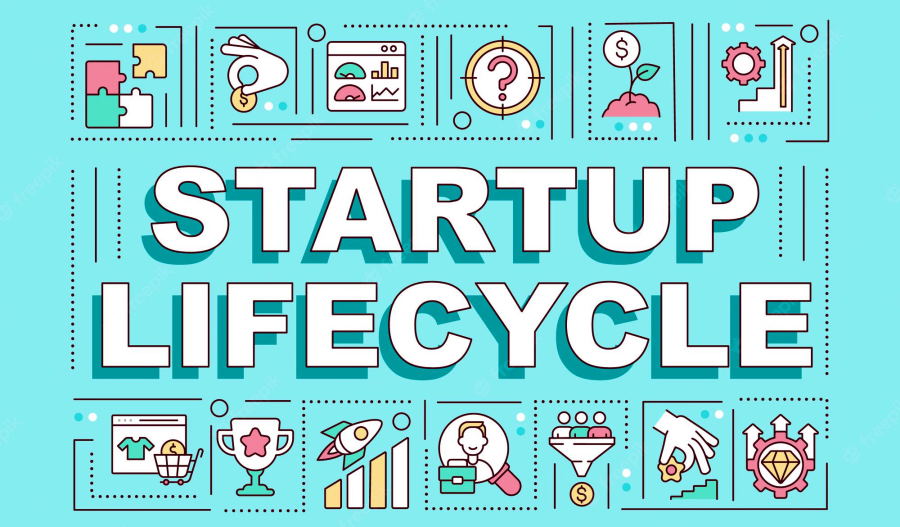A startup goes through many stages as it grows. So many people think a startup is just an idea, but there is so much more to it. In this blog post, we will explore the different stages of a startup and what you can expect from each stage. We will also discuss the main reasons why startups succeed or fail. So, if you are interested in starting your own business or want to know more about the inner workings of startups, keep reading!
The startup lifecycle: from garage to unicorn
The startup lifecycle is the process that a startup undergoes from its initial stages of development to become a fully-fledged company. The main stages of the startup lifecycle are ideation or generating new ideas, product development, testing and validation, business model development, and scaling. Each stage presents challenges that must be overcome for the startup to succeed.
Ideation is the first stage of the startup lifecycle and involves generating new ideas for products or services. This is usually done through market research, problem identification, and brainstorming sessions. Once an idea has been generated, it must be validated to ensure a need for it in the market. This is done through customer surveys, focus groups, and other market research methods.

The next stage is product development, which involves taking the validated idea and turning it into a prototype or minimum viable product (MVP). This MVP is then tested and validated to ensure that it meets customer needs and can be successfully marketed. Once the product has been validated, the startup can develop a business model to generate revenue. This stage of the startup lifecycle is all about figuring out how to make money from the product or service.
The final stage of the startup lifecycle is scaling, which involves growing the business by expanding into new markets, increasing customer acquisition, and building a team of employees. Scaling can be challenging for startups as they need to maintain a high level of quality while also increasing their customer base.
The startup lifecycle is an important process for any startup to go through to succeed. First, it helps to ensure that the product or service is viable and that there is a market. The stages of the startup lifecycle can be challenging, but by overcoming them, startups can achieve great things.
How does a startup become a unicorn: insights from the leaders of some of the most valuable startups?
A startup becomes a unicorn by attracting the attention of venture capitalists and other investors, and by achieving significant growth in a relatively short period of time. In order to attract investment, a startup must have a clear value proposition and a strong team with the ability to execute on their vision. Achieving significant growth can be difficult, but it is often essential for startups that want to become unicorns. There are a number of ways to measure growth, but one common metric is gross merchandise volume (GMV), which refers to the total value of all goods sold through a platform. To achieve Unicorn status, startups typically need to grow their GMV at least 20% month-over-month for several consecutive months.

There are many factors that contribute to a startup’s success, but becoming a unicorn requires attracting investment, having a strong value proposition, and achieving significant growth.
Venture capitalists and other investors are always on the lookout for the next big thing, and they are willing to bet big on startups that have the potential to become unicorns. In order to attract their attention, startups need to have a clear value proposition and a strong team with the ability to execute on their vision.
Achieving significant growth can be difficult, but it is often essential for startups that want to become unicorns. There are a number of ways to measure growth, but one common metric is gross merchandise volume (GMV), which refers to the total value of all goods sold through a platform. To achieve Unicorn status, startups typically need to grow their GMV at least 20% month-over-month for several consecutive months.
There are many factors that contribute to a startup’s success, but becoming a unicorn requires attracting investment, having a strong value proposition, and achieving significant growth. If a startup can do all of these things, they have a good chance of becoming the next big thing.

